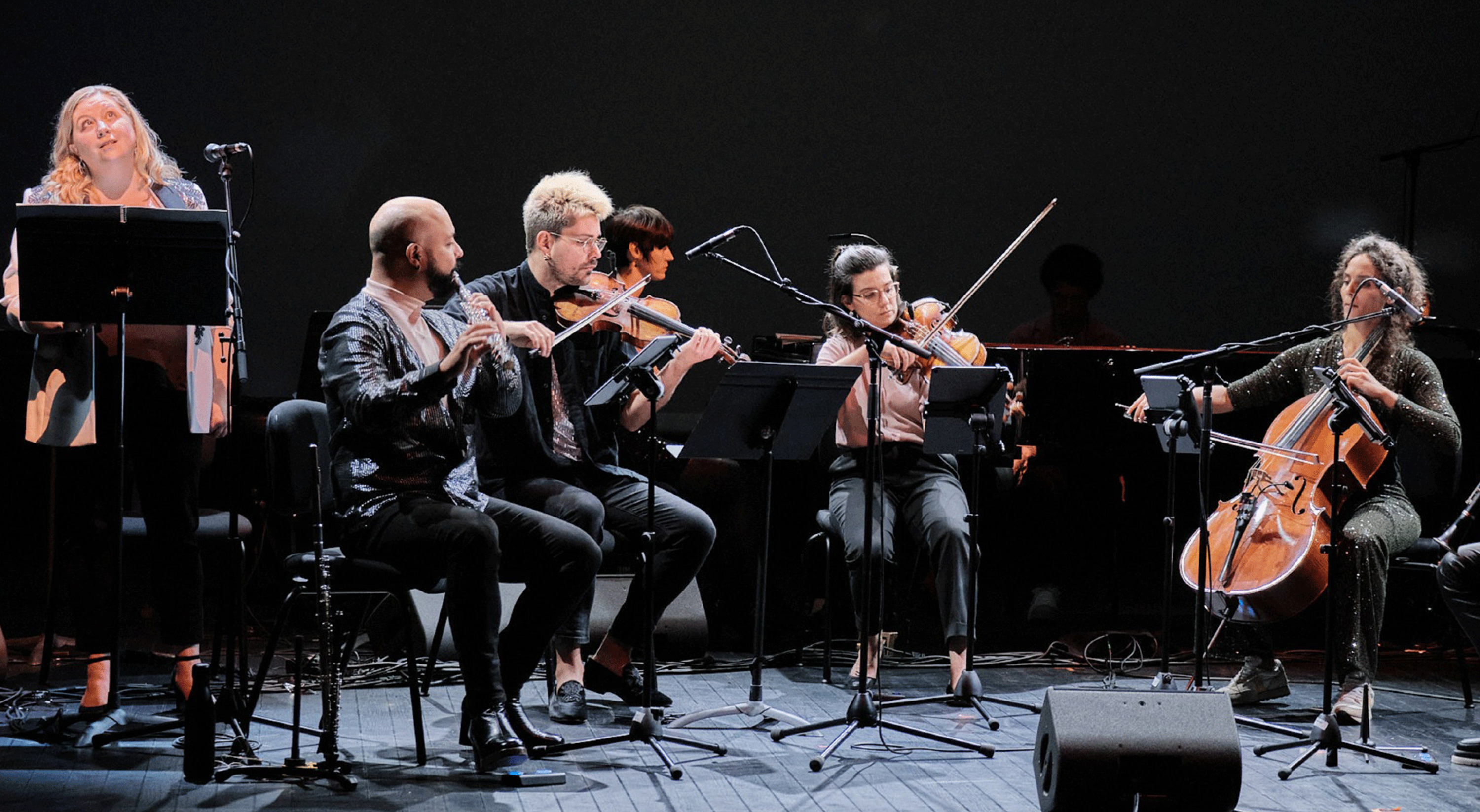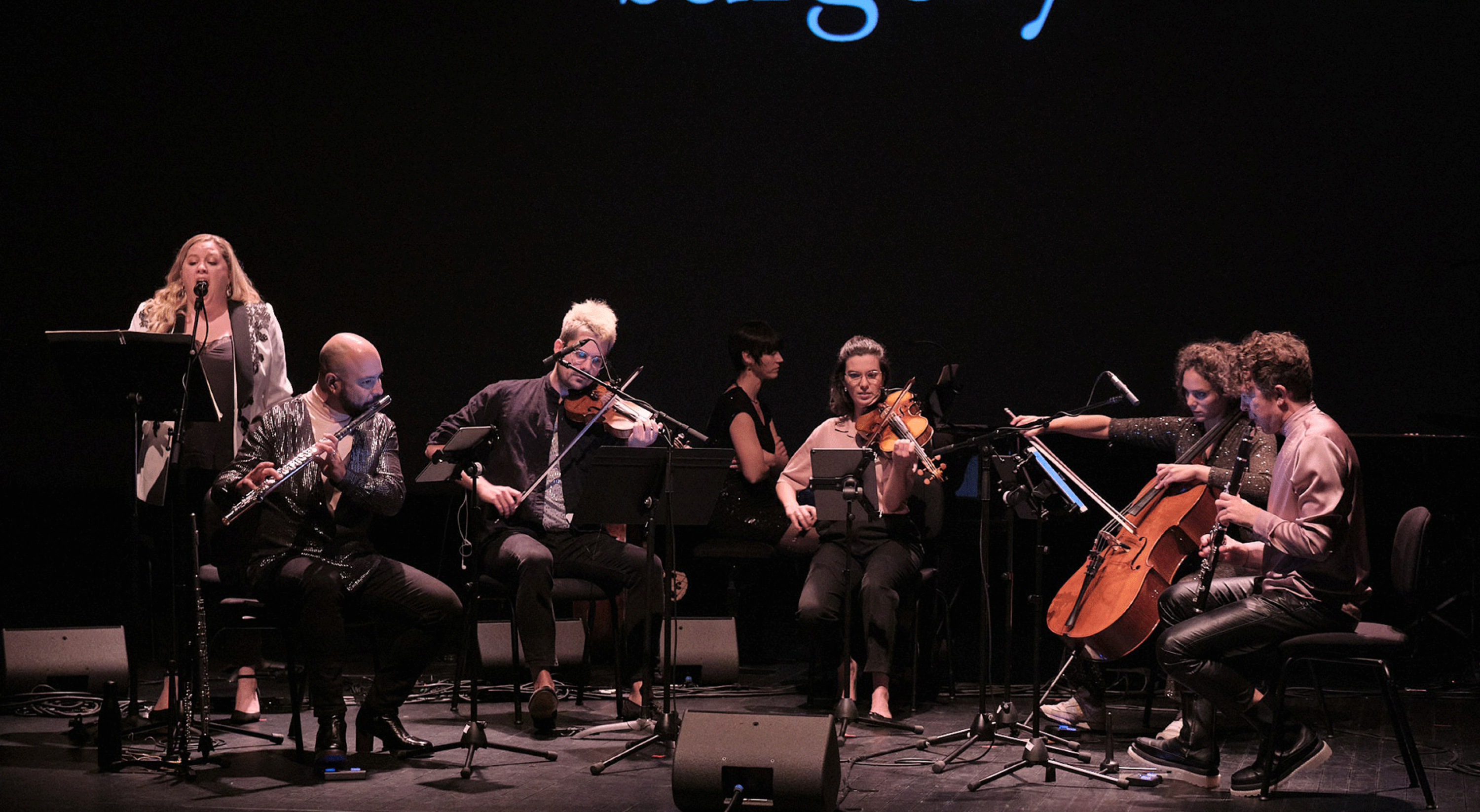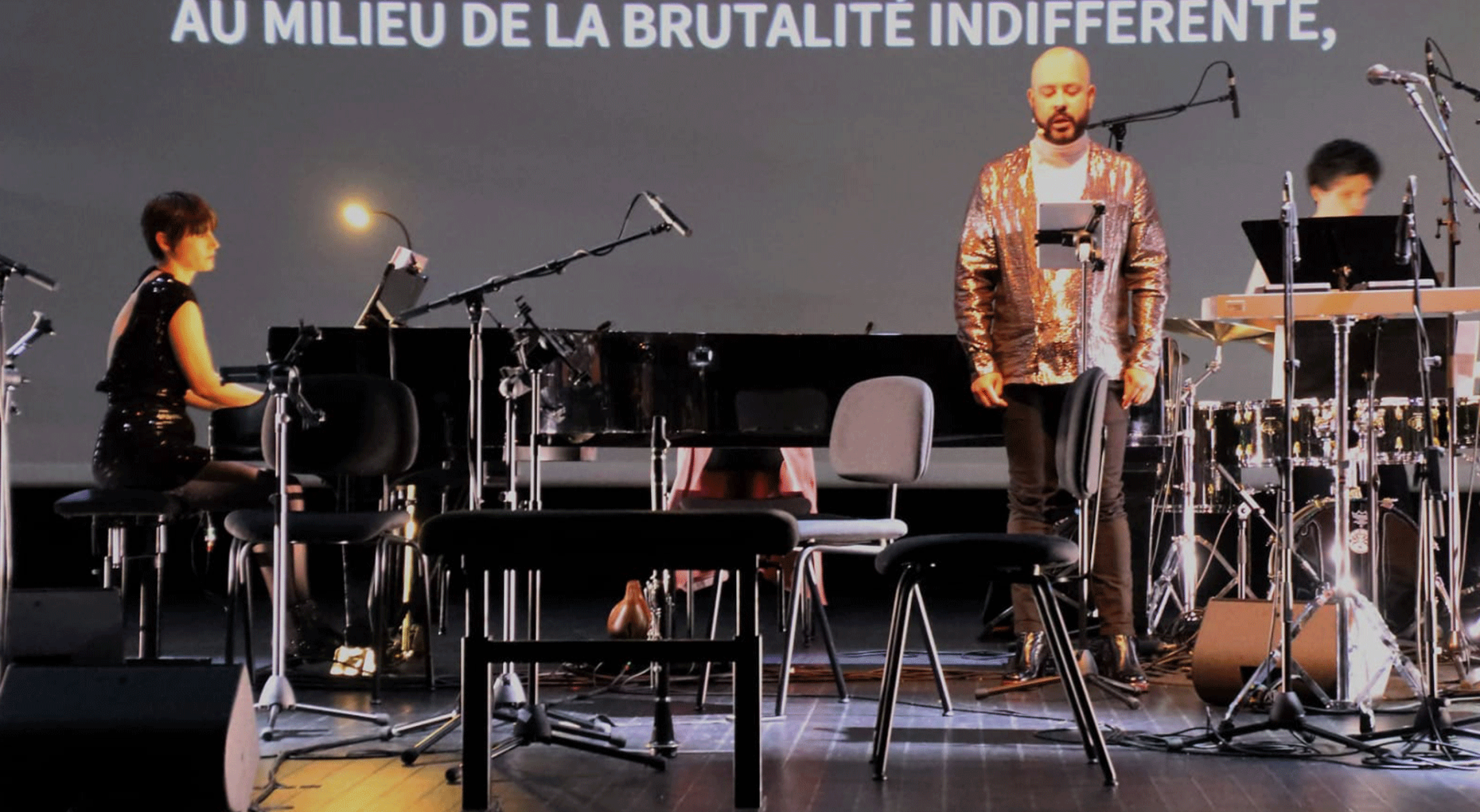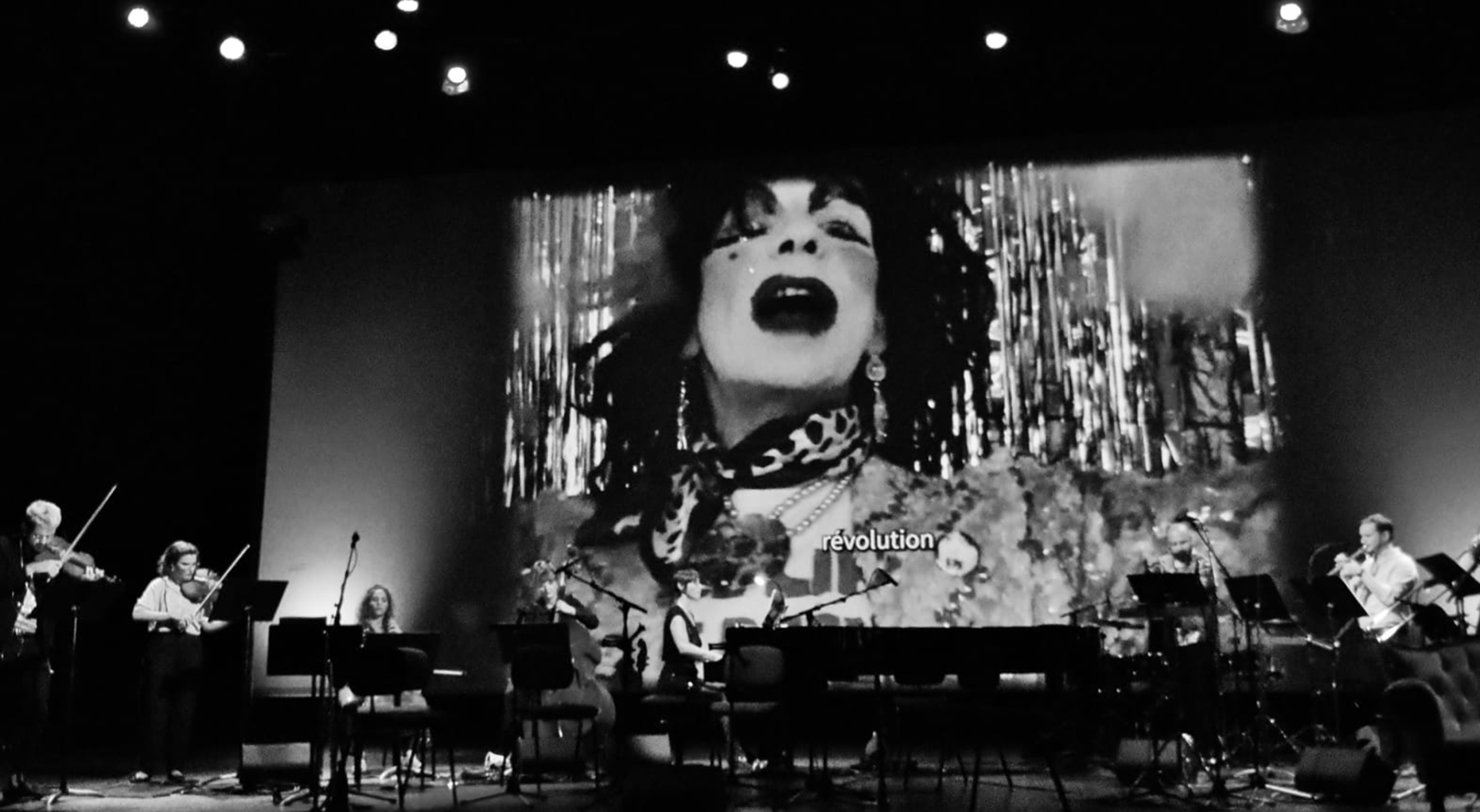Philip Venables
Talking Music
octoberoct 26
Philip Venables
Klaviertrio im Geiste, for piano, violin and cello
My Favourite Piece is the Goldberg Variations, for accordion
Text, Ted Huffman
Numbers 81–85, Numbers 96–100, for voice, alto flute, clarinet, violin, viola, cello
World première. Commissioned by the Festival Musica, collectif lovemusic and the Festival d’Automne à Paris
Numbers 91–95, for narrator, two tape recorders, flute, piano and wood block
Text, Simon Howard
Illusions, for video and ensemble – Video performance, David Hoyle
Frederic Rzewski
Coming Together, for speaker and ensemble
Romain Pageard, the host
Grace Durham,soprano
Andreas Borregaard, accordion
Collectif lovemusic
Oscar Lozano Perez, spatialization
The Festival d’Automne à Paris is coproducer of the concert, presenting it in collaboration with the Théâtre de la Ville-Paris.
––––––
Duration: 140 minutes, no intermission
Performance in English, supertitles in French
Freedom of speech, speech freed. Here is in storytelling for Philip Venables, a master of the art on the original music scene. The composer provides proof that everything can be articulated in music, from private life to the public sphere, on identity-related issues and political stances.
A new style of concert follows the pattern of a private discussion, half-way between a session with a psychoanalyst and a carefully prepared talk show. Stories are told continuously, in the first person, and are moderated by a Master of Ceremonies. When projected onto a screen or personified on stage, they provide links between the works, while also venturing into the depths of the musical substance, providing both model and contrast. The ardent words chosen by Philip Venables have one thing in common, always being part of a modern-day form of poetry. The work Illusions was started at the time of the British elections in 2015 and completed in 2017, coinciding then with the 50th anniversary of the legalization of homosexuality in England and Wales. Here, in the prophetic ramblings of the LGBTQIA+ muse David Hoyle are assertions that art can radically change attitudes. “This evening, the life in you will be reflected in the art you are witnessing.” With careful attention, the slightest element of subjectivity, the smallest secret, may reveal a shared fate. Such is the lesson we learn from My Favourite Piece is the Goldberg Variations, written for accordion and based on the moving tale of the mother of the accordionist. The mind cannot evade the distress of solitude, nostalgia or oblivion. This can be heard in the revolutionary and phantasmagorical verse of Numbers by the poet Simon Howard, the subject of an entire cycle by the composer, and also in the letter by the American activist Sam Melville with reference to the Attica Prison riot which cost him his life, all rendered in the magnificent music of Frederic Rzewski.



